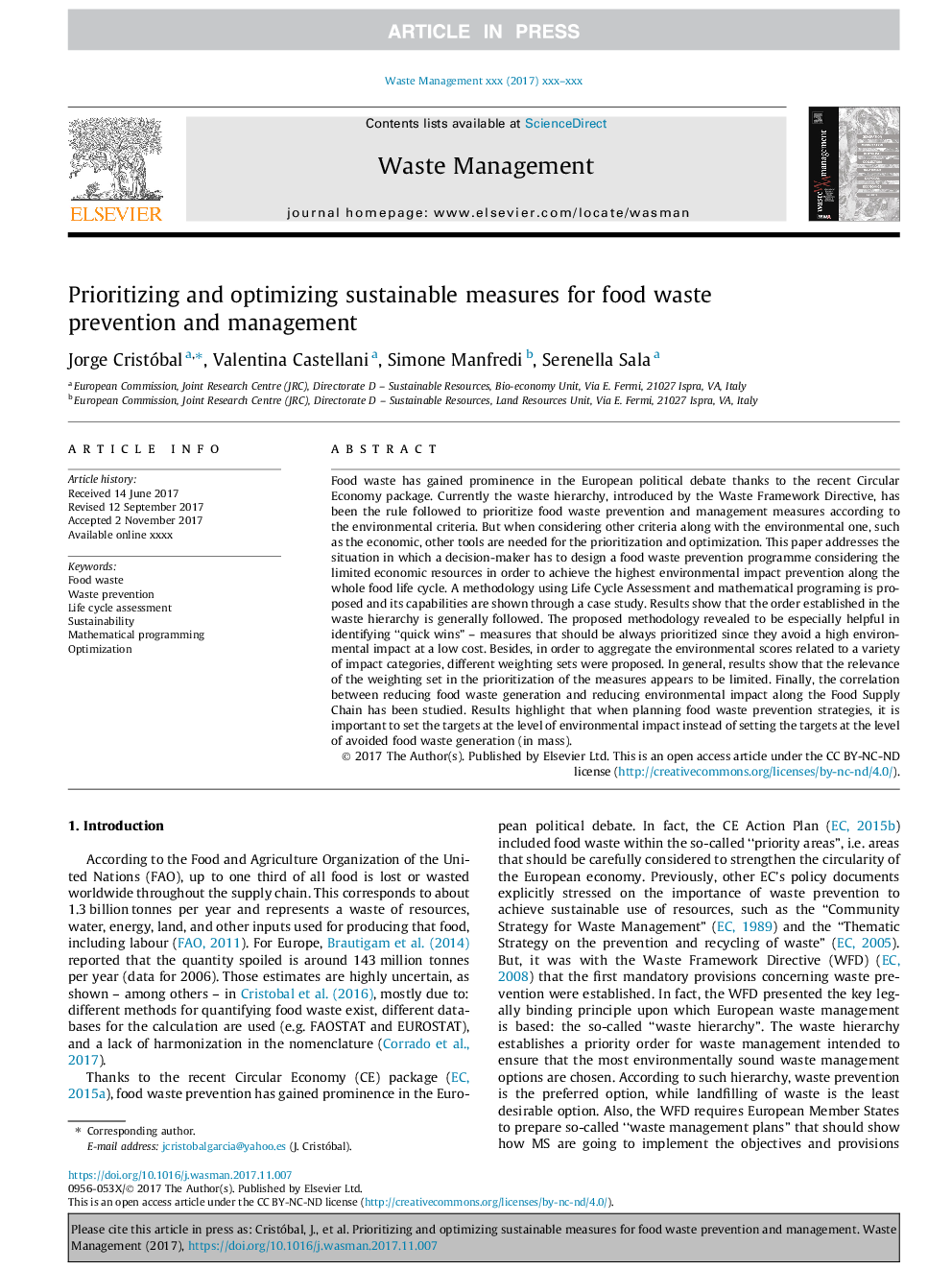ترجمه فارسی عنوان مقاله
اولویت بندی و بهینه سازی اقدامات پایدار برای پیشگیری و مدیریت زباله های مواد غذایی
عنوان انگلیسی
Prioritizing and optimizing sustainable measures for food waste prevention and management
| کد مقاله | سال انتشار | تعداد صفحات مقاله انگلیسی |
|---|---|---|
| 161253 | 2018 | 14 صفحه PDF |
منبع

Publisher : Elsevier - Science Direct (الزویر - ساینس دایرکت)
Journal : Waste Management, Volume 72, February 2018, Pages 3-16
ترجمه کلمات کلیدی
زباله های مواد غذایی، پیشگیری از زباله، ارزیابی چرخه حیات، پایداری، برنامه ریزی ریاضی، بهینه سازی،
کلمات کلیدی انگلیسی
Food waste; Waste prevention; Life cycle assessment; Sustainability; Mathematical programming; Optimization;

